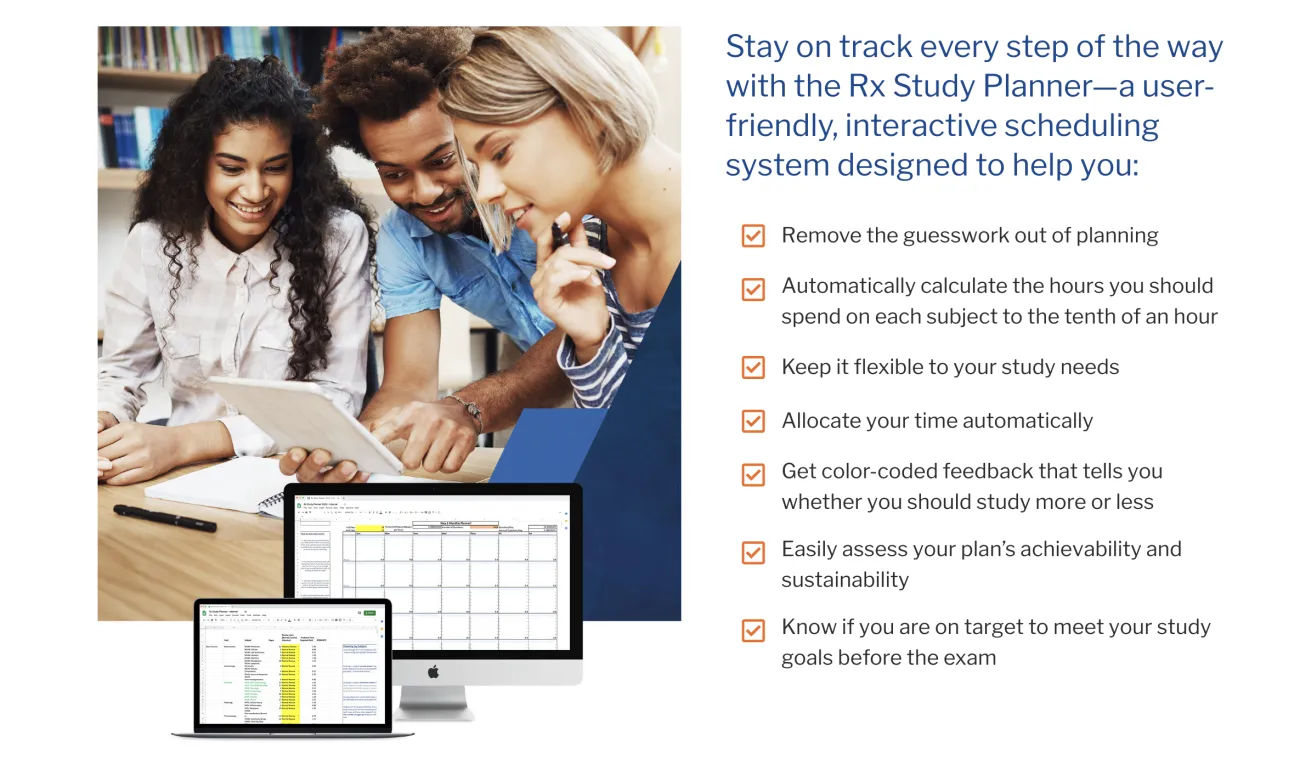Download the Rx Study Planner — Updated for First Aid 2024 & First Aid for the USMLE Step 2 CK

Download the new Rx Study Planner for FREE at: https://go.usmle-rx.com/study-schedule/
Learn how to set up your planner by checking out our YouTube series:
When it comes to building your study schedule, here are some additional tips to keep in mind:
- Make sure you cover EVERY subject
- Don’t play the “this isn’t high-yield” game when it comes to entire subjects (i.e., don’t say, "Immunology isn’t high-yield"). Cover every subject – period.
- Don’t spend the same amount of time on every subject – some have more material in them than others. This is where the high-yield/low-yield game may factor in.
- Be sure to spend extra time on your weakest areas – I’d suggest allocating 50% more time to areas you’re especially weak in.
- DO LOTS OF PRACTICE QUESTIONS! Don’t jump right into USMLE sample questions, as you may drown. Read the material in books and then make sure you apply it via practice questions. Studying is a 2-step process (gaining knowledge then applying that knowledge).
- Take the NBME exams! They’re the single best indicator of actual exam performance. If you fail an NBME right before test day – don’t take the test yet! If you need practice, take the new self-assessment exams in Qmax.
- Try to study with a partner or a group for at least some portion of your day. Studying alone is boring, lonely, and it can be far more draining and unmotivating than bouncing ideas off of someone else.
- Take breaks. Be sure to relax at least one evening a week, if not an entire day. This is a stressful time and you don’t want to wind yourself up so tightly that you can’t perform come test day.
- Eat, Sleep, and Exercise. Everyone says this, but who really does it? At the very least, eat, sleep and try to exercise.
Good luck studying and coming up with a schedule. Hopefully, the samples attached to this post will be helpful.
Got a Study Schedule you'd like to share? Email it to us so that we may share it with other med students.
